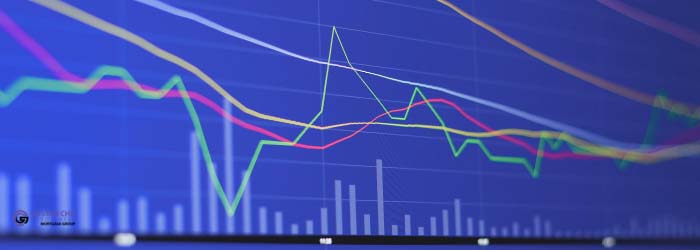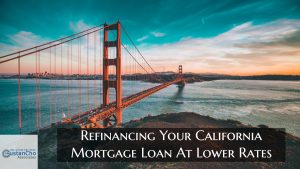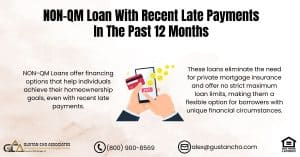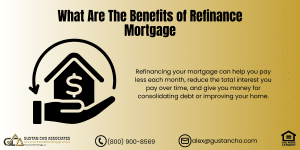In this blog, we will cover what factors affect mortgage rates on home loans. Each borrower’s individual risk factors determine mortgage rates. We will be discussing what factors affect mortgage rates pricing on home loans. Credit scores and other layered risk factors determine the mortgage rate. The higher the risk, the higher the rates charged by mortgage lenders. We will also cover how loan-level pricing adjustments are determined. In this article, we will discuss and cover what factors affect mortgage rates pricing on home loans. Each borrower can get different rates. Lenders’ price mortgage rates start at a par rate and then will get pricing hits based on each individual risk factor. We will cover home mortgage lenders determine mortgage rates for borrowers.
What Factors Affect Mortgage Rates for Borrowers
Many borrowers want to know why everyone has different rates on home loans. National mortgage rates fluctuate up and down several times daily. Some days are more volatile than others. However, the par rates from the Federal Reserve Board are not the actual rate each individual borrowers get. Mortgage Rates have positive and negative adjustments to the par mortgage rates. This depends on each individual borrower. Just because the national par 30-year fixed mortgage rate is 3.75% on a conventional loan does not mean that every home buyer will get the 3.75% interest rate.
Par Mortgage Rates Versus Loan-Level Pricing Adjustments
The most qualified borrowers to get par rates of 3.75% (this rate is for illustrative purposes only) need the following:
- perfect credit
- single-family home purchase
- over 740 credit scores
- reserves
- 25% down payment and 75% LTV
- no negative credit item
- reserves
Loan-level pricing adjustments are pricing hits by lenders for borrowers with specific risk factors. The higher the risk, the larger the LLPAs are.
High Credit Scores Yield Lower Rates
A borrower with the above credit profile will likely not have any negative price adjustments. High credit score borrowers will get the best par 3.75% mortgage rates (the par rate used in this example. Borrowers with lower credit scores, high loan-to-value, and higher debt-to-income ratios will likely get a negative price adjustment. Their mortgage rates will be higher. Every lender has its own pricing hit based on risk factors.
Credit Scores and What Factors Affect Mortgage Rates
Credit scores have the biggest impact on mortgage rates, especially with conventional loans. The lower credit scores are, the higher mortgage rates will be. For example, let’s take a case scenario:
- if mortgage rates nationally are 3.75%
- this rate will only be available for borrowers with credit scores of 740 or higher on a conventional loan
What Factors Affect Mortgage Rates on Conventional Loans?
Conventional loan programs are extremely credit score sensitive. For example, a borrower with a 720 credit score can get quoted a mortgage rate at 4.0%. Scores at 700 FICO, the rate can be priced at 4.25%. Scores falling between 680 and 699, the LLPA can drive the rate to 4.5%. When the scores fall between 660 and 679, rates can be at 4.75%. 640 and 659 credit scores, the mortgage rate can be priced at 5.0%. For borrowers with scores of 620 and 639 FICO, the rates can be over 5.0% to 6.0% on a conventional loan.
What Factors Affect Mortgage Rates on FHA Loans?
FHA loans are not as credit score sensitive as conventional loans. Let’s take a case scenario and say FHA mortgage rates are around 4.0% nationally (We are using rates on this blog for illustration purposes only). If credit scores are 680 or greater, the chances are that borrowers will get the best mortgage rates on FHA loans. If credit scores fall below 600 FICO borrowers may get mortgage rates higher than 5.0% plus possibly pay discount points due to Loan Level Pricing Adjustments (LLPA).
Cash-Out Refinance Mortgage Has Higher Mortgage Rates
Homeowners who want cash-out refinance mortgage loans will get a higher mortgage rate. No matter which mortgage loan program borrowers choose, almost all lenders will charge between a 0.25% to 0.75% mortgage rate increase over the par rate on the cash-out feature.
Multiple-Units And 203k Loans Have Higher Mortgage Rates
Multiple-unit properties, 2 to 4 units, have higher mortgage rates than single-family homes for all mortgage loan programs. Both conventional, FHA, and VA multiple-unit property loans will normally have a 0.25% to 0.75% mortgage rate adjustment over par rates. FHA 203k loan programs have higher mortgage rates. Normally, FHA 203k loans have LLPAs of 0.50% or more due to risk.
Loan-To-Value Price Adjustment
It would be best if you had a loan-to-value of 75% LTV or lower to get the best mortgage rates. Any loan to value higher than 75% LTV will get a mortgage rate price adjustment.
How Lenders Base Risk Pricing Mortgage Rates
The higher the risk borrowers pose to lenders, the higher the mortgage rates. Lower credit scores pose a great risk for mortgage lenders. That is why lenders will charge a higher mortgage rate than those with higher credit scores. A borrower who has more skin in the game by putting a larger down payment. A larger down payment minimizes the risk for mortgage lenders. Larger down payments prove skin in the game. Lower loan-to-value is considered compensating factor. Less risk on lenders. Larger down payments are charged a lower mortgage rate. The lower the loan-to-value is, the lower the mortgage rate.
Loan-Level Pricing Adjustments on Multi-Family Homes
2 to 4-unit properties pose a greater risk to lenders than a single-family home. Mortgage lenders charge a higher rate for multi-unit properties. Same with high-end homes. Mortgage rates for jumbo mortgages are higher than conventional mortgage rates. Condos have higher rates than single-family homes. Higher debt-to-income ratio, borrowers get higher rates. Manual Underwriting has higher rates than borrowers with approve/eligible per Automated Underwriting System.
Best Mortgage Lenders For Bad Credit With No Overlays
Gustan Cho Associates has a national reputation for being able to do mortgage loans other lenders cannot do. Over 80% of our borrowers are clients who could not qualify at other mortgage companies due to overlays or because the other lender did not have the mortgage loan option they needed. Gustan Cho Associates is a Missouri, Illinois, Michigan, California, Connecticut, Wyoming, North Dakota, Maryland, New Jersey, New Hampshire, Vermont, Rhode Island, North Carolina, South Carolina, West Virginia, Virgnia, Ohio, Indiana, Florida, Alabama, Mississippi, Texas, New Mexico, Oklahoma, Arizona, Oregon, Wyoming, North Dakota, South Dakota, Hawaii, Alaska, Idaho, Nebraska, Iowa, Nevada, Montana, Maine, New Mexico, Arkansas, Minnesota, and Kentucky. Assumed Name filed on April 6, 2022. The company’s filing status is active, and its File Number is X001725342. The company’s principal address is 17w662 Butterfield Rd Ste 305, Oakbrook Terrace, IL 60181-4005.









